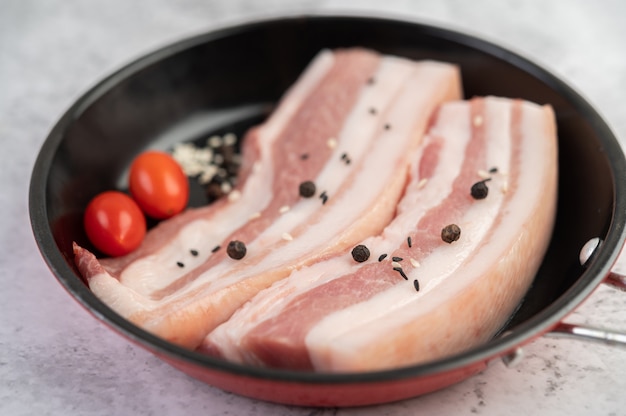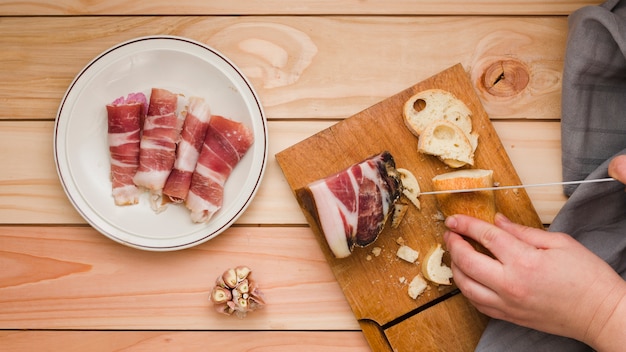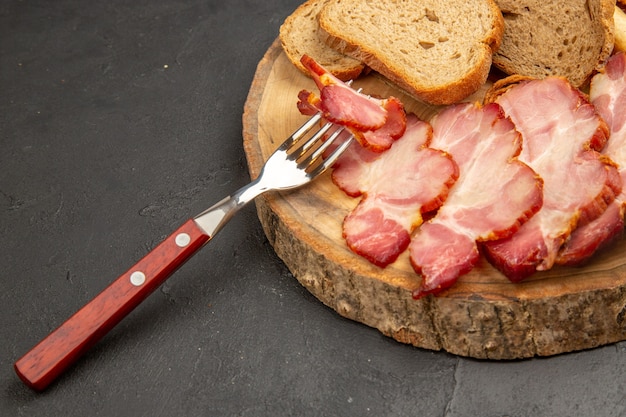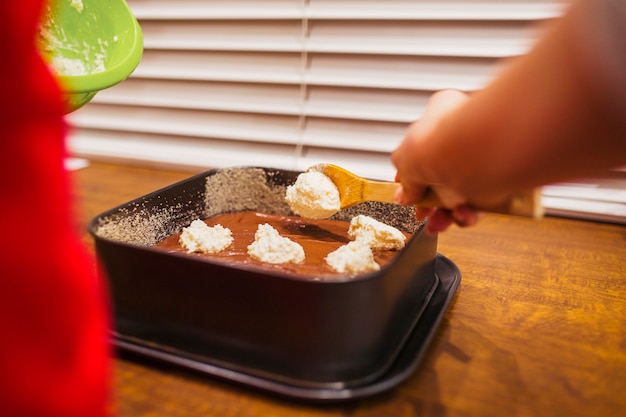Ah, spiral ham. The mere mention of it conjures up images of warm, festive gatherings, family feasts, and those irresistible glazed edges that vanish in a flash. I've always had a soft spot for spiral ham – it's a guaranteed crowd-pleaser, effortlessly easy to prepare, and always adds a touch of elegance to any meal. But let me tell you, finding the perfect recipe and mastering the art of spiral ham wasn't always a walk in the park. I've had my fair share of dry, overcooked hams, and let's just say those experiences weren't exactly culinary highlights. But fear not, dear readers, for I've finally cracked the code, and I'm here to share my secrets to achieving a succulent, juicy, and flavour-packed spiral ham that'll leave everyone craving more.
Part 1: Choosing the Right Ham

First things first, let's talk about the ham itself. Choosing the right ham is crucial, just like selecting the perfect ingredient for any dish. There are so many options out there, from bone-in to boneless, pre-sliced to whole, and even different flavors like honey-glazed or maple-smoked. My personal favorite is a bone-in spiral ham, because the bone helps to keep the ham moist during cooking. But hey, you do you! It all depends on your preferences and the occasion.
Tips for Picking the perfect ham
- Read the label: Check the package for information about the ham's weight, cooking time, and ingredients. You'll also want to consider the sodium content if you're watching your salt intake. A quick glance at the ingredients list can tell you if there are any surprises you might want to avoid.
- Look for a good colour: A well-preserved ham should have a pinkish-red hue, with no signs of discoloration or spoilage. A good color is a visual indicator of freshness.
- Don't be afraid to ask: If you're unsure about anything, just ask your butcher or the staff at the supermarket. They're always happy to help! You can always ask about the different types of ham they have, how they were prepared, and any suggestions they might have for your specific needs.
Part 2: Prepping Your Ham

Okay, so you've got your ham, now what? Before you start cooking, there are a few things you'll want to do to ensure a perfect outcome.
The Importance of Scoring
Scoring your ham is like giving it a little massage before its big moment – it helps the glaze penetrate deeper and creates those beautiful, crispy edges. Think of it as a way to maximize flavor and create an appealing visual effect.
- Use a sharp knife: A serrated knife works best for scoring. A sharp knife will make the process easier and prevent tearing the ham.
- Cut diagonal lines: Make about ??-inch deep cuts across the ham, forming a diamond pattern. You want the cuts to be deep enough for the glaze to penetrate, but not so deep that you cut through the ham.
- Be careful not to cut through the ham: You just want to score the surface.
Glazing Time!
Now for the fun part! Glazing your ham adds a layer of flavour and shine that's truly irresistible. There are countless glaze recipes out there, but I'll share a couple of my personal favourites.
Classic brown sugar glaze
This is a timeless classic for a reason. It's simple, sweet, and always a winner.
Ingredients:
- 1 cup packed brown sugar
- ?? cup Dijon mustard
- ?? cup apple cider vinegar
- 2 tablespoons honey
Instructions:
- Combine all ingredients in a saucepan over medium heat. The key here is to stir constantly so that the sugar doesn't burn.
- Bring to a simmer, stirring constantly, until the sugar dissolves and the glaze thickens slightly. You'll know it's ready when it coats the back of a spoon.
- Brush the glaze over the ham, ensuring to coat every nook and cranny. Don't be afraid to use a generous amount of glaze!
Sweet and Savoury honey-mustard glaze
If you're looking for something a little more complex, this glaze is a real treat. The combination of honey, mustard, and spices creates a truly unique flavour profile. The sweetness of the honey pairs beautifully with the tang of the mustard, while the ginger and garlic add a savory depth.
Ingredients:
- ?? cup honey
- ?? cup Dijon mustard
- 2 tablespoons soy sauce
- 1 teaspoon ground ginger
- 1 teaspoon garlic powder
- ?? teaspoon black pepper
Instructions:
- Combine all ingredients in a saucepan over medium heat.
- Bring to a simmer, stirring constantly, until the glaze thickens slightly.
- Brush the glaze over the ham, making sure to get those scored edges.
Pro Tip:
Keep some extra glaze on hand! You can baste the ham with the glaze every 30 minutes during cooking, or simply drizzle some over it once it's out of the oven for that extra dose of deliciousness. Basting helps to keep the ham moist and adds an extra layer of flavor.
Part 3: Cooking Your Spiral Ham to Perfection

Alright, the moment of truth has arrived – time to cook that beautiful ham! Now, you have two main options here: baking or slow cooking.
Baking:
Baking your ham in the oven is a quick and easy method, perfect for a weeknight dinner or a casual get-together. It's a simple and reliable method that delivers consistently good results.
Instructions:
- Preheat oven to 325°F (160°C). Preheating the oven ensures even cooking and prevents the ham from becoming dry.
- Place the ham in a large roasting pan. Make sure the pan is big enough to accommodate the ham without overcrowding it.
- Add about ?? cup of water to the bottom of the pan to create steam and keep the ham moist. The steam helps to prevent the ham from drying out during cooking.
- Cover the ham loosely with aluminum foil. Covering the ham helps to trap in moisture and prevent the ham from becoming too crispy.
- Bake for about 15-20 minutes per pound, or until the internal temperature reaches 140°F (60°C). Always check the internal temperature to ensure that the ham is cooked through.
- Uncover the ham and baste with glaze during the last 30 minutes of cooking. Uncovering the ham allows the glaze to caramelize and gives it that beautiful, crispy finish.
- Let the ham rest for 10-15 minutes before carving. Allowing the ham to rest allows the juices to redistribute, resulting in a more succulent and juicy ham.
Slow Cooking:
For a truly tender and flavourful ham, slow cooking is the way to go. It allows the flavours to meld beautifully and creates a melt-in-your-mouth experience. Slow cooking is a great option if you want a hands-off approach, and the result is a beautifully tender and flavorful ham.
Instructions:
- Place the ham in a slow cooker. Make sure your slow cooker is large enough to accommodate the ham.
- Pour ?? cup of water or apple juice into the bottom of the cooker. The liquid helps to create steam and keep the ham moist.
- Brush the ham with glaze.
- Cook on low for 6-8 hours, or on high for 3-4 hours. Adjust the cooking time based on the size of your ham.
- Baste the ham with glaze during the last hour of cooking. Basting helps to ensure that the glaze is evenly distributed and creates that beautiful, caramelized finish.
- Let the ham rest for 10-15 minutes before carving. Resting the ham allows the juices to redistribute, resulting in a more tender and succulent ham.
Part 4: Serving Up Your Masterpiece
Your spiral ham is cooked, beautifully glazed, and ready to be devoured. Now, let's talk about presentation!
Cutting and Serving:
- Use a sharp carving knife: This will make cutting the ham nice and easy. A sharp knife will make the slicing process easier and prevent tearing the ham.
- Cut against the grain: This will prevent the ham from being tough and dry. Cutting against the grain helps to break down the muscle fibers, resulting in a more tender and juicy ham.
- Slice the ham into thin pieces: This will make it easier to serve and eat. Thin slices are easier to manage and prevent the ham from feeling too heavy.
- Arrange the ham on a platter: For a more elegant presentation, you can place the ham on a platter with some fresh fruit or vegetables on the side. A beautiful platter will enhance the visual appeal of your masterpiece.
side dish Suggestions:
Spiral ham goes beautifully with a variety of side dishes. Here are a few ideas to get you started:
- Roasted vegetables: roasted asparagus, Brussels sprouts, or sweet potatoes are always a crowd-pleaser. Roasted vegetables add a vibrant pop of color and provide a healthy balance to the rich flavors of the ham.
- mashed potatoes: Classic mashed potatoes are a perfect accompaniment to ham. Mashed potatoes are a classic comfort food that pairs perfectly with the savory flavors of the ham.
- Mac and cheese: This cheesy classic is always a good choice. Mac and cheese is a crowd-pleasing side dish that complements the ham beautifully.
- green bean casserole: A classic holiday side dish that pairs well with ham. Green bean casserole is a traditional holiday dish that adds a touch of nostalgia to your meal.
- fruit salad: For a lighter option, a fresh fruit salad is a great addition. Fruit salad adds a refreshing burst of sweetness and color to your meal.
Part 5: Leftover Love
Let's be honest, there's usually a bit of leftover spiral ham, and that's a good thing! You can use the leftover ham in countless ways to create delicious meals for days to come.
Leftover ham recipes:
- ham and cheese sandwiches: Classic and simple, but always delicious. These are perfect for quick lunches or snacks.
- Ham and potato soup: Warm and comforting, perfect for a chilly day. This soup is a hearty and flavorful meal that will warm you from the inside out.
- Ham and bean salad: A light and refreshing salad, great for a potluck or picnic. This salad is a great way to use up leftover ham and is perfect for a casual gathering.
- ham and cheese quiche: A savoury and satisfying quiche, perfect for breakfast or lunch. This quiche is a versatile dish that can be served for any meal.
- Ham and Broccoli Pasta: A quick and easy pasta dish, perfect for a busy weeknight. This pasta dish is a simple and delicious way to use up leftover ham.
Storing Leftovers:
- Refrigerate: Store leftover ham in an airtight container in the refrigerator for up to 4 days. Proper storage will help to preserve the flavor and freshness of the ham.
- Freeze: To freeze leftover ham, wrap it tightly in plastic wrap and aluminum foil. It can be frozen for up to 3 months. Freezing is a great way to extend the shelf life of your ham.
Part 6: Tips for Success
Here are some bonus tips to help you create the most delicious spiral ham ever:
- Don't overcook: Overcooking will result in a dry and tough ham. Use a meat thermometer to ensure the ham is cooked to the correct internal temperature. A meat thermometer is an essential tool for ensuring that your ham is cooked to perfection.
- Let the ham rest: Allowing the ham to rest for 10-15 minutes before carving will help it retain moisture. Resting the ham allows the juices to redistribute, resulting in a more tender and succulent ham.
- Be creative with glazes: Don't be afraid to experiment with different glazes. You can find endless glaze recipes online, or even create your own! Don't be afraid to experiment and find a glaze that suits your taste.
- Pair with your favourite sides: Spiral ham goes well with a variety of side dishes, so choose what you enjoy the most.
- Don't forget the leftovers: Leftover ham can be used in countless recipes, so get creative and enjoy!
Part 7: FAQs
Got questions about spiral ham? I've got answers!
Q: What is the best way to reheat leftover spiral ham?
A: The best way to reheat leftover spiral ham is in the oven. Preheat the oven to 325°F (160°C). Place the ham in a baking dish and cover it with aluminum foil. Bake for 15-20 minutes, or until heated through. You can also reheat ham in a microwave or on the stovetop, but it may become dry. Reheating in the oven helps to retain moisture and prevents the ham from drying out.
Q: Can I make my own spiral ham glaze?
A: Absolutely! Making your own spiral ham glaze is a great way to personalize your dish. There are countless recipes online, or you can experiment with your favourite ingredients. Some popular additions to glazes include honey, mustard, brown sugar, maple syrup, and spices like ginger, garlic powder, and black pepper. Get creative and experiment with different flavors to create a unique glaze that reflects your own personal taste.
Q: How do I know if my spiral ham is cooked?
A: The best way to determine if your spiral ham is cooked is to use a meat thermometer. Insert the thermometer into the thickest part of the ham, making sure it doesn't touch any bone. The ham is cooked when the internal temperature reaches 140°F (60°C). A meat thermometer is an essential tool for ensuring food safety.
Q: Can I cook a spiral ham in a slow cooker?
A: Yes, you can cook a spiral ham in a slow cooker. This is a great option if you want a truly tender and flavourful ham. Just place the ham in the slow cooker, add a cup of water or apple juice, and cook on low for 6-8 hours, or on high for 3-4 hours. Baste the ham with glaze during the last hour of cooking. Slow cooking is a great way to achieve a melt-in-your-mouth texture.
Q: What is the difference between a bone-in and boneless spiral ham?
A: The main difference between a bone-in and boneless spiral ham is that a bone-in ham will be more moist and flavorful. This is because the bone helps to retain moisture during cooking. A boneless spiral ham is easier to slice and serve, but it may be drier. Choosing between bone-in and boneless depends on your personal preference and the occasion.
Part 8: Conclusion: A Ham You'll Remember
There you have it, my friends! Armed with this information, you're well on your way to creating a spiral ham that'll leave everyone singing your praises. It’s not just about the recipe – it's about the memories made, the laughter shared, and the feeling of warmth and togetherness that surrounds a table piled high with delicious food. So go forth, embrace the spiral ham, and create some unforgettable moments around your dinner table.
Everyone is watching

How to Cook Frozen Lobster Tails Perfectly: A Step-by-Step Guide
RecipesLobster. Just the word conjures up images of lavish meals, special occasions, and a taste of luxury. But let's...

Pigs in a Blanket Cooking Time: How Long to Bake for Perfect Results
RecipesAh, pigs in a blanket. Just the name conjures up images of those delightful little parcels of crispy pastry en...

Pork Fillet Cooking Time: How Long to Cook It Perfectly
RecipesPork fillet, or tenderloin as it's sometimes called, is a real favourite in our house. It's so versatile, and...

The Ultimate Guide to Cooking Delicious Frankfurters
RecipesLet's face it, we all love a good frankfurter. It's a classic, simple, and always satisfying. But let's be rea...

Wolf Meat Recipes: A Guide to Cooking Wild Game
RecipesLet's be honest, you don't see wolf meat at your local butcher shop every day. It's a bit of a wild card, but ...
